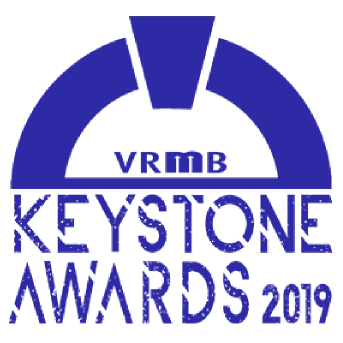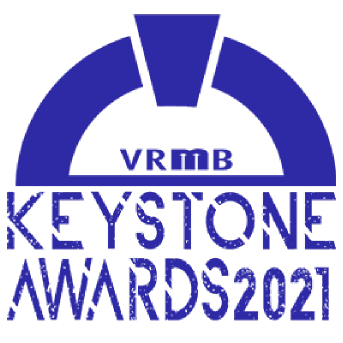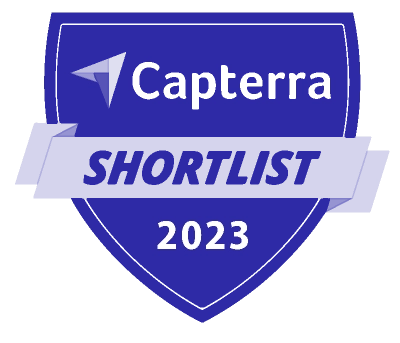Investing in a vacation rental property can be a stellar investment opportunity and generate high returns for your property management business. But, it can be hard to know exactly how to invest, especially when you’re basing your projected revenue on sporadic vacancies while getting to know local markets.
This is your guide to investing in vacation rental property—learn what makes it a great investment, including pros and cons, and follow our roadmap to success—so you can be confident in your offering and drive business growth.
Is a vacation rental property a good investment?
Investing in vacation rental property can be a great investment if you know what to go after.
Here’s why.
- Short-term rental revenue is rising year over year: with total projected revenue of US 82.78bn in 2022.
- Travelers and families are booking longer trips: Vrbo has seen a 68% increase in 21-30-day stays in 2022.
- Peak seasons are getting longer: The increase in flexible and remote work is extending peak demand over more months. Especially since 89% of travelers planned to travel in the first half of 2022.
But remember, investing in a vacation rental property isn’t the same as investing in traditional real estate. To realize value from your investment, you need to deeply understand your market and how to anticipate and adjust for fluctuations in demand.
Let’s take a look at how you can do that.

Vacation rental investment roadmap
Investing in a vacation rental involves more than collecting the keys and waiting for the cash to flow in. Below, we look at key considerations potential vacation rental investors need to keep in mind before buying a vacation rental property.
1. Predicting your vacation rental’s income potential
As you browse homes, it’s important to predict your potential return on investment (ROI). Depending on your investment, short-term rentals can offer both long-term equity growth and cash flow—giving you the best of both worlds.
Here are some questions to consider when evaluating your vacation rental’s income potential:
- How in-demand is the property type?
- How many people can you host?
- How will you set your pricing strategy for the vacation rental?
- Are you limiting personal use during peak seasons?
- What are the local attractions and amenities?
- What’s the potential for the investment to appreciate?
- Is the interior design good quality and niche-appropriate?
Use these questions to help you better predict and understand your investment’s potential—so you can find a property that fits your needs and portfolio.
Also vital to bear in mind:
The #1 rule of vacation rental investing: Location
Location—above all else—is the number one factor that determines your vacation rental’s profitability. Properties in high-demand tourist areas will obviously command more reliable and higher rental fees, but the initial investment will be substantially higher.
And if you go off the beaten track, you have to consider whether it’s close enough to amenities to still be attractive—the reality of a cabin in the wilderness can sometimes be a long way removed from the romantic ideal.
You can use tools like Zillow.com to get an idea of market values, what’s available for sale or rent, and current rental prices in any area. Make the most of the information that’s out there to inform your decision and investment strategy.
2. Calculating expenses and recurring costs
The recurring costs will start to add up once your vacation rental investment property is open for business. So, you’ll need to calculate and consider the following factors before buying an investment property:
Property management
Will you manage the property yourself or hire a property manager? If it’s a long way from where you live or from any other rental investment properties you own, how are you going to manage it? Similarly, maintenance might be more expensive if contractors in the immediate area charge travel fees.
If contracting out, you also need to think about management fees. These can vary from region to region. Read our free guide to short-term rental management fees for some useful insights. Nothing beats hard numbers though. Once you familiarize yourself with management fees, start making some phone calls to get accurate estimates.
You or your property manager can also make managing a vacation rental property easier by using a property management platform like Hostfully. Spend less on operational expenses and automate manual and repetitive tasks to save time and lessen your workload. This gives you back more time to focus on maximizing ROI on your investment.
See our piece on how to start a property management business for more tips and tools.
Upfront renovations
Will you invest in any upfront renovations to the property? Depending on the type and complexity of your renovations, you need to work them into your predicted recurring costs and investment budget so you know exactly what’s going into your venture.
Furnishing the property
As well as the initial purchase cost, furniture in vacation rental investment properties tends to wear out quicker than in a home that’s lived in and carefully maintained by its owner. High-wear pieces, specifically couches, will wear out fast. Expect to spend around $30-50,000 on furnishings to ensure your vacation rental meets guest expectations and gets a great rating.
Cleaning and turnover
Whether you own just one or a portfolio of properties, they’ll need professional cleaning between each reservation. You may feel you could turn over a single property yourself if it’s nearby, but consider the value of your own time and whether you can fit that commitment into your existing obligations. Cleaning costs vary from region to region. So once again, before diving in and investing, make some phone calls.
Consumables
How much will you spend on cleaning materials, soaps, shampoos, towels, bedding, etc? All these need replacing much more frequently in vacation rental investment properties than long-term rental properties. You’ll also want to factor in welcome baskets and other gifts you’ll leave the guest.
General maintenance costs
You need to account for unpredictable maintenance fixes, damages, and replacements. These are also typically higher for STRs than your own home or a long-term rental due to natural wear and tear.
| Pro tip: For smart real estate investing, make sure you do the work and stay informed. For example, just as with management fees, don’t assume that consumables cost the same where your vacation rental investment property is as in your hometown. Make sure you have all the costs clear in your mind before committing to any purchase. Spend the extra hours making phone calls and don’t assume a price or cost you saw in a Facebook group for vacation rental owners applies in your area. |
3. Doing market research and due diligence
Once you’ve narrowed down your search to two or three locations, it’s important to zoom in on their local markets and demand. Residential demand is very different from vacation rental demand, so make sure you know the difference.
Some questions to consider are:
- Is there enough demand to make it sustainable year-round?
- How does demand vary seasonally?
- What are the popular property types in the area?
- What are the vacation trends in the area?
Answering these questions is always more complex than it looks, but there are some useful resources to help you do it right.
- Sites like AirDNA offer market insights that are invaluable to anybody considering buying an investment property.
- AllTheRooms provides analytics that are equally useful to both managers of a portfolio of vacation rental properties and the owner of just one.
- Need market information from further afield? Wheelhouse provides market intelligence worldwide.
- KeyData provides real-time data on the vacation rental investment property markets that will integrate with your own Property Management System.
| Pro tip: Always keep an exit strategy in mind. By doing research on the market in the area you’re considering, you also get insights into how attractive your vacation rental investment property (or properties) are to potential buyers if you choose to sell later. |
4. Tax benefits and liabilities
Before you make an investment decision, it’s worth looking into any potential tax benefits and liabilities you can incur. Depending on the location, your vacation rental may lend itself to sheltered cash flow because of interest and depreciation write-offs—meaning you get to keep more of your hard-earned money.
In some locations, if you’re renting your vacation home for more than two weeks of the year, it’s considered a real estate business for tax purposes. So, your rental income will still be taxed, but you can deduct many of your expenses including:
- Property management fees
- Utility costs
- Mortgage interest
- Occupancy taxes
5. Financing
As your vacation rental becomes more of a reality, you’ll need to figure out your financing. Here are some common questions that can help you structure your financial planning:
- What is the total cost of the investment?
- Who will you borrow from?
- What capital will you need upfront or for a down payment?
- What assurances will you need to provide?
In the US, in most cases, you’ll qualify for a loan the same way you would for a long-term rental: by presenting your W-2 income, credit score, tax returns, and Debt-to-income (DTI) ratio.
You might also qualify for pre-approved financing. Pre-approvals can help make sure you get the bid on your new investment as you’re backed by a reputable lender and presenting a deal sellers can trust.
6. Negotiating
By doing your due diligence and market research, and relying on insights from your agent, you can negotiate a strong offer backed by market trends, the vacation rental landscape, and the home’s income potential.
Your negotiations will also depend on if you buy in-season or out of season:
- Investing in a vacation rental property out of season can get you a great deal on your new investment but it can mask specific peak season considerations and conditions. For example, let’s say you buy a vacation rental property in a beach town. If you purchase the house in the winter, you might miss critical cues that impact the summer experience: like needing pool maintenance or installing air conditioning.
- Investing in a vacation rental in-season might raise the price of your investment, but it gives you the opportunity to experience the property as your guests would and personally witness key selling points (or spot any necessary season-specific improvements).
7. Finding ways to save
There are some financial advantages to vacation rental investment property ownership. If your portfolio qualifies as a business, some expenses can be written off. Hostfully also has some helpful hints on how to cut back on expenses without harming your guests’ experience.
But remember: compared to a long-term rental, vacation rentals have expenses that at one point you won’t be able to cut (as tempting as it may be). That’s because you’re dealing with guests. So if you cut too far on, say, consumables, but have the luxury of high-priced rentals, your reviews might take a hit. There’s a fine balancing act when it comes to savings vs the guest experience. As an investor, it’s best to overestimate these costs.
You might also want to consider:
- Tiny house vacation rentals
- Glamping structures (domes, luxury tents, yurts)
Both tiny homes and glamping sites have a much lower upfront cost than traditional real estate. They’re also much easier to advertise (think of how ‘Instagrammable’ these properties can be) and service (small square footage)—making the profit margins and returns on investment quite attractive.
8. You’ve taken the plunge. Now get the advertising right.
Even if you’ve done your due diligence on everything else, you don’t want your vacation rental investment sitting empty. Potential guests need to know it’s out there and available.
How you market a vacation rental investment property can be the difference between low ratings and profit losses and a healthy ROI. But you need to know the channels that have the most reach and target the right audience, wherever your vacation property is located. Check out this report on multi-channel distribution for vacation rentals to help you maximize rental income and minimize vacancy.
Here are some channels you need to consider.
Online travel agencies (OTAs)
Let’s take a look at the most popular distribution channels out there to help market your short-term rental property:
1. Airbnb: The most visited online rental agency in 2022 and a great option for getting your listing out there without paying annual fees—especially for hot-spot destinations or city rentals.
2. Vrbo: A popular platform for listing full-house rentals for families or travel groups. You can pay annually or use their pay-per-booking model.
3. Homeaway: A great place to list private rentals for families for a yearly fee, but with fewer global listings than Airbnb.
4. Booking.com: A comprehensive OTA for all-things travel including flights, car rentals, hotels, and short-term vacation rentals.
Using OTAs to market your property gives you more visibility and (to an extent) security, but you do have to pay fees. Plus, you might not get access to all your guests’ data, which makes it harder to remarket and drive repeat bookings.
But, listing your vacation rental property doesn’t need to be overwhelming. When you use vacation rental software like Hostfully to drive direct bookings to your website, you get access to all your guest data. And our channel manager feature makes it easy to manage and update your listings and pricing in real time across different channels. That way, you never have to worry about double bookings, which can spell disaster for your ratings and host status.
Direct bookings
Marketing alone can’t make your guests love their stay. Don’t lose sight of the fact that a strong guest experience can boost your income with services and amenities they’re prepared to pay extra for. What’s more, you’ll save money on advertising in the long term by boosting reservations through word of mouth.
That said, if you want word-of-mouth reservations, you’ll need to design your own rental website or use a PMS like Hostfully that allows you to embed a direct booking widget on your website. This will let you target and retain a pool of loyal repeat guests. It’s also one way to create independence from listing sites and Online Travel Agencies and save on fees.
Other ways you can get direct bookings include:
- Industry networking events. Attend industry events to make important connections that could benefit your renters and vacation rental business; ranging from cleaning and maintenance contacts to real estate agents.
- Brand or local partnerships. Support your community by placing flyers, take-out menus, or information about local businesses and attractions in your property—in exchange for presenting your marketing materials.
- Influencer marketing. Look for niche influencers in your area or industry and contact them to get the word out about your rental or portfolio in exchange for a free stay.
- Leveraging guest data for remarketing. Spot common characteristics in your previous direct booking guests and use your insights to remarket your property to specific guest profiles. If you’re using Hostfully, you also get access to analytics and reporting tools that show you key property booking trends, so you know what’s working and who you’re attracting.
Pros and cons of investing in short-term rentals
Like any investment opportunity, there are pros and cons you need to consider when making your decision.
Pros of investing in short-term rentals
Let’s explore the benefits of your vacation rental property investment:
- Tax write-offs: A vacation rental property, much like a primary residence, comes with lots of potential tax deductions related to insurance premiums, mortgage payments, property taxes, and rental income.
- Home appreciation: If you’ve made a smart investment, your property will surely appreciate (or rise in value) over time. You can also boost your appreciation rate by renovating your property and focusing on home improvement.
- Recession friendly: People’s desire to take a vacation tends to be a constant, even in uncertain times—so your vacation rental is a relatively safe investment.
Cons of investing in short-term rentals
On the other hand, common cons to investing in vacation rentals are:
- Finding guests: Sometimes, it can be hard to find guests and stabilize your occupancy rate. When you partner with a vacation rental software like Hostfully, you can easily list on up to 14+ OTAs at a time, like Airbnb, Vrbo, and Booking.com, which takes the hard work out of getting bookings.
- Property management: Investing in a vacation rental property means you need to figure out how to manage it. If you’re using Hostfully to help manage your listing(s), you can save costs on property management fees and the ability to easily assign properties and tasks to members of your team. You also get a central calendar that syncs all your properties across multiple listing sites—creating a single source of truth for all your bookings. Best of all, Hostfully has all the integrations with third-party tools you need as your business grows. So you’ll never have to switch no matter how big you get.
- Monthly expenses and payments: Purchasing a new property means you’ll have all the additional expenses that come with buying a home, like an extra mortgage payment, maintenance costs, repairs, and utilities.
Vacation rental investments: a winning move if you know how to play
Smart vacation rental investments can generate reliable income for you. Before submitting your bid and securing your investment, though, you need to think about:
- Your vacation rental’s income potential
- Expenses and recurring costs
- Market research and due diligence
- Tax benefits and liabilities
- Financing and negotiating considerations
- Ways to save
- How you’ll advertise and run your vacation rental
With vacation rental software like Hostfully, you can handle all your vacation rental guest communications and bookings in one easy-to-use platform. This frees you up to focus on maximizing ROI on your investment—and going after the next one.
Frequently asked questions about investing in vacation rental properties
Is owning vacation rentals profitable?
Yes, owning vacation rentals can be a very profitable business endeavor that can help you generate income—especially when the short-term rental market is only going to expand. And, when coupled with a powerful PMS like Hostfully, you can manage your vacation rental hands-free while creating an impressive guest experience.
Why are vacation rentals a good investment?
Vacation rentals are a good investment for a few reasons, including:
- Passive, supplemental income
- Tax write-offs
- Property and home appreciation
- Recession-friendly investment
What is a good rate of return on a vacation rental?
A good rate of return on a vacation rental is anywhere from 8-10%. However, depending on your investment and rate of return needs, you should be looking for properties that suit your specific goals, niche, and business objectives.
How can I get my vacation rental to pay for itself?
To get your vacation rental to pay for itself, you should stay on top of the following factors:
- Your vacation rental’s income potential
- Expenses and recurring costs
- Market research and due diligence
- Tax benefits and liabilities
- Financing and negotiating considerations
- Ways to save
- Advertising your vacation rental
Then, find a powerful vacation rental platform like Hostfully that makes it easy to manage multiple listings across different distribution channels.
When is the best time to buy a vacation rental property?
The best time to buy a vacation rental property is when it makes the most sense for you as an investment. This means understanding property components like:
- Location and demand
- Income potential
- Local market
- Taxes
- Finances













